MR STERILE!
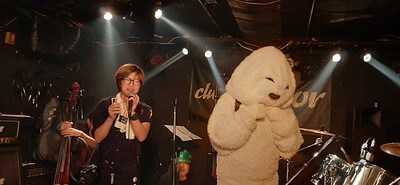
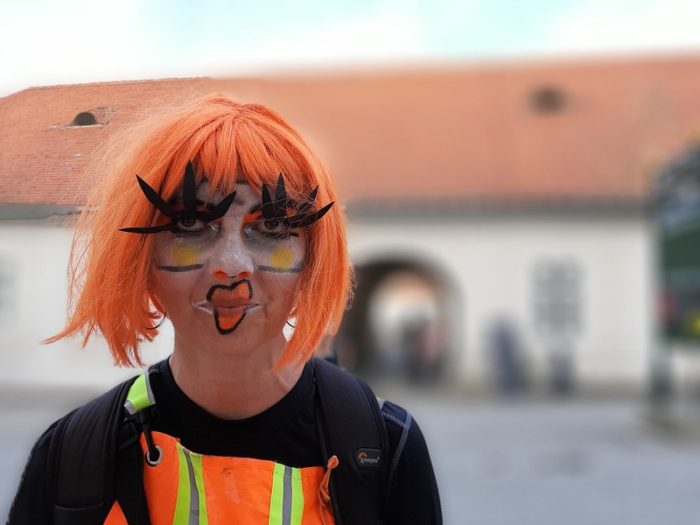
Mr Sterile Assembly is currently a dynamic and assertive genre fluid two-piece of
drums, bass and vocals from Aotearoa, New Zealand, deep in the South Pacific.
Starting in the mid-90′s, as an anarchic solo project mr sterile has mutated into
diverse territory over the last decade from duo to seven-piece orchestra and back
again.
‘The feet of this band are buried deep inside a local history of punk rock, but it
is also a sound that purposefully continues to develop.’
Known as much for their word play, as for their fierce musical delivery, the Assembly has continually cleaved their own path, crafting a distinct musical mood that has been described as ‘oppressive and delightful both at the same time.’
The current line-up is a tightly core focused, cocaine-paced performance orientated
unit. Heavier in sound, the driving bass plays over frenetic and often complex
rhythms, creating an unnerving and unexpected foundation for rich vocal play.
‘The superstars of the 70s, 80s and 90s are becoming less and less relevant,
less frequent, and less necessary. Back then their influence was unavoidable.
These days it is so easy to avoid them that they become potentially
forgettable.’
The unique storytelling for which mr sterile Assembly is renowned is at the heart of
every composition. The Assembly’s lyrics are researched prose often commenting
on pertinent issues to modern life, statements of position, anecdotes of humorous
pranks, scenarios played out historically that exemplify lessons to learn and the risks if ignored, plus accounts of extraordinary lives, being lived!
‘The world is full of fantastic, inspiring, unrestrained and un censored music’
The duo are also known for their tours, taking uncompromising music to venues
dotted around the planet.
I spoke to the band pre-lockdown of the world, although during the Australian bush
fire, so the answers end a period of existence, yet begin the emerging overspill of
discontent in 2020.

How are you?
We are very good. Thank you. It is summer here in Aotearoa New Zealand, so long
and quite warm days. It has been a funny summer. A main feature has been the
impact of the massive fires in Australia, accelerated by changing weather cycles,
with shorter and shorter cool periods in between. Australia is a LONG way from here,
across a big body of water. Some nights the sky has been full of smoke. Some
mornings I’m certain I can smell smoke in the air.
What can you tell me about yourselves?
We live in the capital city of Wellington, in the island nation of Aotearoa New
Zealand. Our band, mr sterile Assembly, is fast approaching it’s 20th birthday in 2021.
Our group has been a two-piece for the last 6 or 7 years – drums and bass.
Prior to that we had many changing line-ups with interesting musicians. It’s been an
active project with a dynamic changing component. More recently, settling on the
number two we wonder how much can we do with this format?
And a happy convenience is that we happen to be married to each other. This is
great fun. Chrissie plays the bass, composes most of the melodic music and sings. I
play the drums, compose most of the words and sings gruffly.
We have actively been touring, predominantly but not exclusively, around d.i.y
networks since 2006. We will try to go to places that groups from our country don’t
usually visit to play music in. Our first tour to Czech republic was in 2006 after
making a deep friendship with the duo Sabot, who lived in Tabor.
Outside of the musical project we are parents who also have day jobs, Chrissie in
education, and me as a nurse.
Whom are the ‘Haters, Wreckers and Other Friends’?
The title ‘Haters, Wreckers and Other Friends’ is from a solo mr sterile release. The
phrase ‘Hater’s and Wreckers’ was a political slur by the Prime Minister in the early
2000s, Helen Clark. She spat this statement out as a dismissive slur towards
predominantly Māori activists at the time who were protests a piece of proposed
legislation called The Foreshore and Seabed Act. A piece of law which would denies
the customary owners of the land their right to access and determine what happens
in their domain.
So the phrase is a nod towards, and a solidarity with, the dissenters.
Where is the band name derived?
That happens to be a mildly long and less-interesting story. Could have something to
do with cleaning techniques, the assembling of medical equipment, and the
preserving of food processes … or something to do with vasectomies. Lost in the
mists of time.
If you are not doing it for the kids, who are you doing it for?
For ourselves of course! Alive a short time, along time dead, might as well fill it up
with enjoyable adventures, wonderful opportunities to make friends, be exposed to
new sounds, keep active and have a reason for having a day job. As long as it
continues to create random opportunities such as this exchange, then it’s worth it.
Tell me more about the story telling behind your music?
The feet of this band are buried deep inside a local history of punk rock, but it is also
a sound that purposefully continues to develop. Alongside this has been the
exposure and active participation in local theatre companies, experimental music-
making communities and self-organised ways of organising and assembling.
Early on we worked with a process that invited any into the group if they were
enthusiastic to perform with what we had on offer. One main intention has held a
focus of high-energy performance, as well as a component of dialogue with current
topics in a song format. This concept really took off, literally, when we met the duo
Sabot. The invitation we received from them to travel and play around Czech
opened our gaze and sense of opportunity. Add to this was what we felt was the
realisation that there was a global community of like-minded music makers, who had
grown from that energy of punk but were also compelled to continue to develop
musically, aesthetically and creatively…. a determination to avoid the straight-jacket
of genre. Aotearoa New Zealand is always a long way from anywhere; this global
community of affinity was not always so obvious.
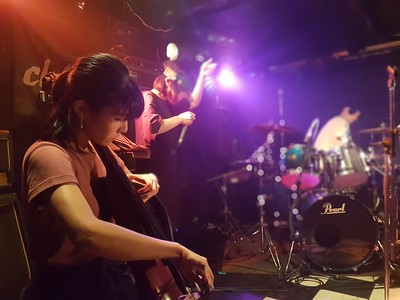
Why is ‘Punk’ not simply a sound?
We don’t even tend to think that punk is a sound. It was always an approach, an
access point, a welcoming to expression not mediated by popular press or social
convention. Becoming a genre bin in a record store has somehow limited the full
potential of that initial movement. The ‘Punk’ sensibility still exists but often missing
from ‘punk rock’. It can be found in many other forms of music and performance
around the fringes, almost never in the centre of mainstream consumption.
What is contemporary cultural conversation?
Sounds like a phrase we’ve used somewhere . Essentially it’s a phrase to
prompt that what we engage with is current is some way or form, rather than naval
gazing and nostalgic referencing art for arts-sake. If someone else chooses that path
that that’s ok, this is not necessarily a judgement statement, but more a provocation
that we choose to apply. It doesn’t mean that the stage necessarily needs to be
treated as a soapbox. It is just a great opportunity and entertain and generate
conversations/exchanges and learning’s along the way.
Personally we are interested in what is going on and around a particular community,
it can be deeply fascinating. In many of the places we’ve travelled too offer many
fantastic meetings with locals, we want to talk and learn and share. We want to
discuss how local networks sort out shows and spaces, sometimes in very
challenging environments, and be open to learning others experiences and creative
expressions.
Does where you reside artistically matter anymore within the context of the
digital age?
Absolutely. Digital access has been amazing! It’s an incredible moment in time
where the whole world of music has opened up for exploration, any style from any
country from any era. No longer held ransom by the radio playlist or what is on the
shop shelf.
But as incredible as this is it is no substitute for seeing live performances, to see how
people focus and deliver work they feel passionate about. And this energy rubs off,
and if lucky a conversation might be had with them, or a new friendship made, or the
seed of an inspiring idea planted to be explored later.
I think its nice to hear/see/sense a parochial something in the music/artwork made. It
would be a terrible thing to happen if the digital age had just flattened the massive
diversity of sonics and expressions made across the earth. If nothing else fight
against the homogenous blank blah, that tedious uniform aesthetics without spikey
peaks, rhythms or unexpected deliveries.
Why have you continued with this project amongst other endeavours for time
now?
It remains a project that still feels like it holds something to explore. The music still
feels personally satisfying, challenging and entertaining. It hasn’t lost the fun. It’s not
always there; any project with continuity has periods of struggle. But our experiences
from the last tour were of immense fun; it’s a project that continues to allow us to
access interesting pockets of communities.
What is the concept behind your aesthetics and vibe, notably the neon
colours, and face art?
The aesthetic hasn’t always been of neon colours. The face painting is a constant
since the start. It is often described as theatrical, but there is not much more about
our act that fits the theatre framework. But this description is not totally inaccurate.
Prior to this group we were both involved in a local avant-garde theatre group for a
number of years.
More recently though the ‘aesthetic’ has become much more strongly aligned with
the contents of what the current groups of new songs may be about, in a more broad
way than a tightly conceived ‘concept’. The costume is another format to play with,
which in the discussions of sorting out can help to distil the ideas we’re trying to write
lyrically and sonically into songs. The costumes add information to the songs and
vice versa.
(I really like your neon vibes, which I have seen appear in runways and other bands.
Where was the inspiration from?)
The orange for this current look is made around the ideas of warning from danger,
survival devices like road cones or life jackets, items of clothing that protect from the
awful carnage such as a butchers apron, the unmissable garment of the Hi-Viz vest
which accentuates the need for attention to survival. These are all important
concepts in these collective current times of upheavals political and climactic. If one
misses the warning signs then the next turn in the road may be the last.
Why do you do what you do?
For all the best reasons, its fun, entertaining, challenging, its an activity that puts us
into new places with new people, music is an un-satiable adventure if your not
locked into specifics.
Once upon a time when very young it was easy to believe that music would change
the world. Age teaches that that is not really likely; the world is a massive, complex,
and a hard beast to understand. BUT music continues to hold the very real possibility
that it will change your individual, personal, world. That’s an adventure worth
exploring.
What were some of the highlights of your travels and tour this year?
So many!! We documented our trip, as we often do, on our website. You can read all
about it HERE.
It was a 12 week jaunt starting in the UK, to Czech then back to UK. From there we
travelled and played in Thailand, Malaysia Peninsula, Sabah [Borneo], Indonesia,
China, South Korea and Tokyo, Japan.
The most important highlights always revolve around people, food and
conversations. It’s such a privilege to take a trip like this; it becomes full of once-in-a-
lifetime moments. But it’s a huge amount of work to organise. We do all the grunt
work ourselves. From itinerary designing, the coordination of travel, the
accommodation, locating contacts in new centres – this time much of it was on the
back of work we had done before on previous trips.
Essentially the process of organising these tours is predominantly the classic d.i.y
style of organising, but not always. Because of where we choose to play we accept
that money is not going to be a major factor. We often spend long period after the
tours paying off the trip. But we are lucky enough to have jobs to return to once we
come home. This financial flexibility lets us not be concerned about the financial
viability of shows. This means when we are offered a show in a small village in
southern Sabah, Borneo, and we are close to the location, we can contemplate more
freely the offer. And it’s the experiences like these shows that become long lasting.
I think its fair to say we both have a strong love for the south east Asian
communities. Its there that you can find strong, connected and functioning d.i.y
communities living in sometimes challenging contexts. No other form of tourism
would facilitate that sort of welcoming.
Has what inspires you evolved over the years and the (re)sources?
Of course.
The wide travel has allowed the witnessing of different manifestations of an idea,
self-determination, self-initiation, entertainment and community building from many
different perspectives. The drive may seem similar but the outworking’s present
unique variations in different communities. The endless procession of creative
expression has been something we have been lucky to see in action.
We have also found a fraternity of international music makers that has a feeling of
‘home’ about it. The sound of music made is not necessarily the same but the methodology, intention, energy, is something that affirms affinity. We have made
great friends across our journeys. Witnessing their on-going creative explorations,
attached to our already established personal connections, is inspiring. The drive to
continue to make art/work/music/food/anything is a fundamental human driver. That
we’ve had the chance to rub shoulders with ordinary good people remaining
engaged in creating stuff is continually inspiring.
Is it difficult running a label in the Spotify era?
Never used Spotify. Its not something we contemplate, consider or personally
promote our work on. I know we are on Spotify , but that was from an arrangement
we made with someone in the States several years ago . It’s not something we’ve
pursued.
The accessibility to the world of awesome music via the Internet has been the best
thing to happen. To my ears the Internet has thoroughly murdered the genre, and
good riddance to it.
Running a label sound very grand. We have a bandcamp page where we can
release what we want and when we want and we’re totally happy about that. We live
on a small island at the bottom of the south Pacific and the internet has enabled us
to share what we do the interested ears across the planet.
Indie music was outsider music, so why have we been left with a branded
‘outsider music’ label and indie being a bad word?
I think Indie probably came from the need to place something in a commercial genre,
maybe sometime in the early 80s after post-punk. Punk was outside on the
mainstream. Nirvana changed all that with the album Nevermind. The Indie became
the mainstream and any freedom and liberty that might have been taken creatively
prior seems to become lost to market forces. Genuine ‘outsider’ (and I hate that word
as its almost become a genre in itself) has always been fringe. We call ourselves
‘Outsider Punk’ but its very tongue in cheek.
Do you feel that the project has finally come full circle and cooler as a two
piece?
Every version has been a blast. Have loved every opportunity that we have had to
play with good fun folk across the years. The group has had many variations and its
possible that the two-piece was always going to be explored. But it is great fun. It’s a
blast to see how much we can do with the limited palette that we have. Don’t think
we have exhausted all the options yet. So expect more.
What do you consider outsider music, and is there such thing as ‘mainstream’
or ‘selling out’ in a modern competitive musical climate?
There’s a few ways to look at this. Accepting that there is a mainstream, and this is
becoming less and less relevant, then by definition outsider could be almost anything
outside of the mainstream. Now that’s a simplistic definition. The superstars of the
70s, 80s and 90s are becoming less and less relevant, less frequent, and less
necessary. Back then their influence was unavoidable. These days it is so easy to
avoid them that they become potentially forgettable.
The question of selling out has persisted across the decades. I think it’s an idea that
has actually changed, and I’ve not read a lot of reimagining of what it might mean in
the world of the World Wide Web. We have no problem making dollars for the music
we make through the mechanisms we use, shows, Bandcamp, merch etc.
The idea of ‘competitive musical climate’ is interesting. It’s only relevant if you agree
to take part in the completion. We don’t. Simply refusing to entering into that game
renders it meaningless. The ‘Competitive’ aspect is actually only a tiny segment of
the global music making community; but it can just have a loud voice.
As mentioned before, the world is full of fantastic, inspiring, unrestrained and un
censored music. Personally to enter into the limited and constrained world of the
‘competition’ seems like such a tragic denial of so many other awesome sounds.
Are you guys nostalgic and do you think that it is good or bad to be
nostalgic.
Not really nostalgic at all. It has never been a thing that we’ve felt a need to hold
onto a particular era or sound. If, for some reason, we thought that a particular era
produced the best example of a certain sound then we’ve given up on the
proposition that something awesome may yet come. And the loss will be ours,
because most likely, we’d be totally wrong.
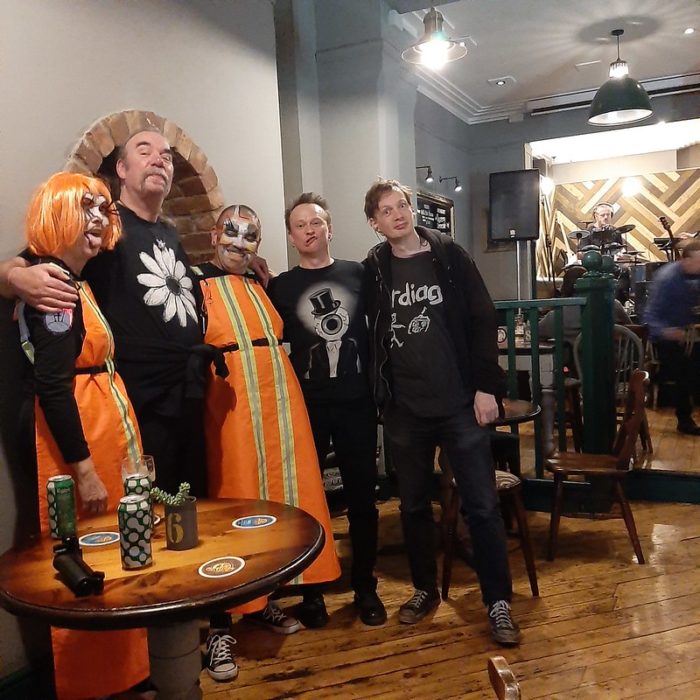
- NEW FRIES! - 08/21/2020
- MR STERILE! - 06/08/2020
- DELILUH! - 01/01/2020

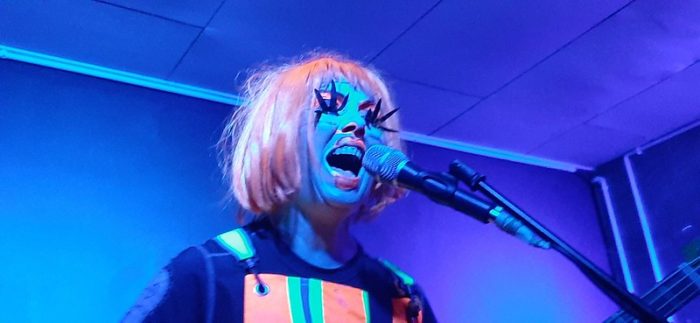
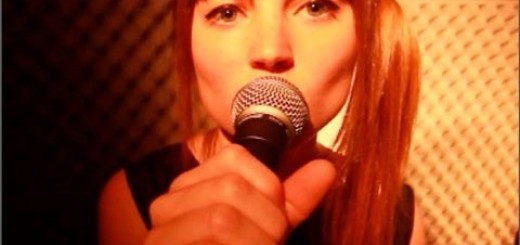
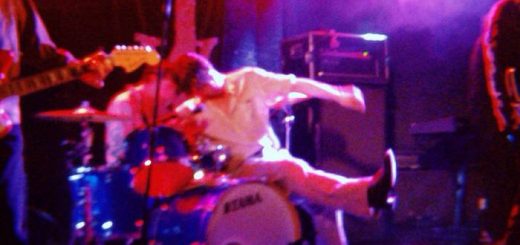
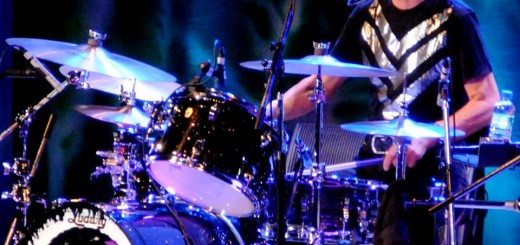
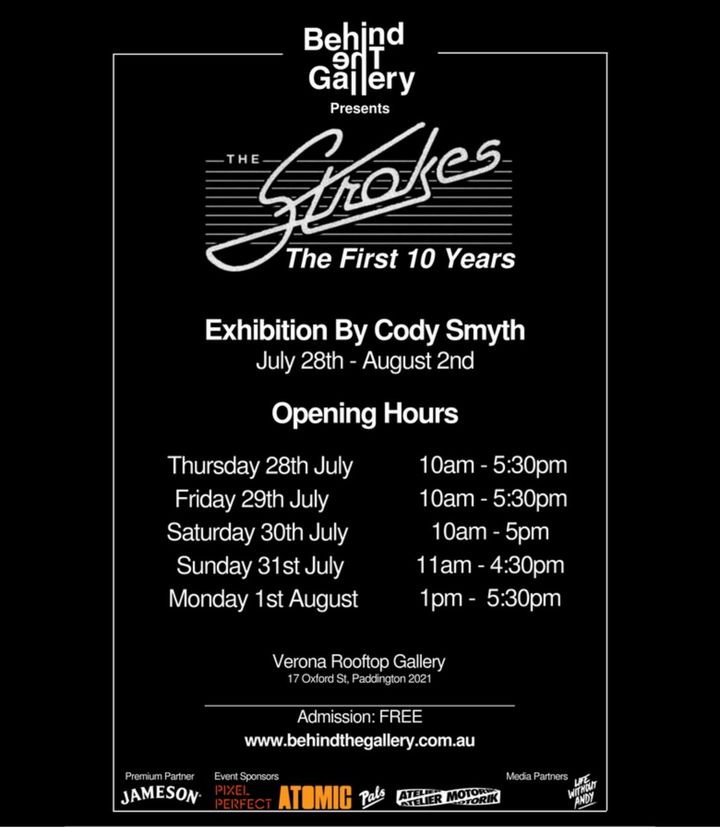
Comentarios recientes